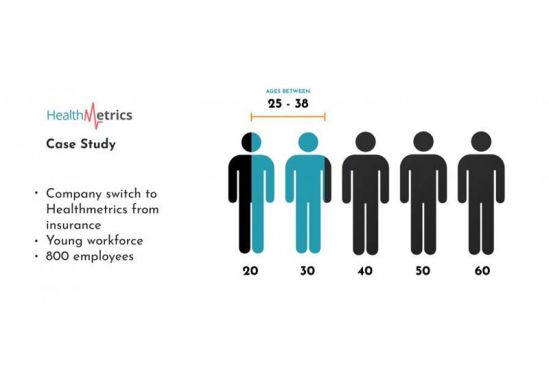Kuala Lumpur, 16th August 2019 - With digitalization innovating most if not all aspects of our lives, it comes as no surprise that corporate healthcare is following the same trend. In fact, healthcare technology is one of the fastest-growing sectors within the already rapidly expanding tech ecosystem. With current growth projections of big data and its immense impact, corporations can safely expect the trend of incorporating big data into employee healthcare which will in turn, power the adoption of artificial intelligence (AI) and automation. Therefore, it is safe to say that technology will play a vital role in shaping corporate healthcare.
Technology is transforming the way employers and Human Resources (HR) teams around the world are approaching employee healthcare. Today, it is not just about corporations providing their employees with access to standard medical care but giving employees a say in their own healthcare benefits according to their preferences and needs. In the first half of 2018, more than $3 billion was invested in Asia’s healthcare sector and that number is projected to have grown this year. With the current investments made towards the healthcare sector, health technology players are well positioned to diversify their tactics in creating multiple approaches to employee healthcare, thus shaping trends within corporate healthcare.
In Malaysia, the healthcare market is projected to experience a 127% growth to RM 127.9 billion in 2027 from the RM 56.3 in 2017. While this may be good news for the nation’s economy, studies have reported an overdependence of employees on their corporate health benefits plans. In fact, Malaysia’s medical costs are projected to rise to 12.7% this year, while group hospitalization and surgical (GHS) insurance claim amounts increased by 8% from RM 4,711 to RM 5,082 last year . Moreover, it has been reported that 91% of employers in Malaysia have reported not having a clear roadmap or strategy when planning their benefits program. The same report states that 91% of Human Resource (HR) teams in Malaysia have difficulty in defining a clear benefits strategy which aligns with their employees’ expectations and needs.
Therefore, employers have admitted to relying on benchmarking data to design their employee health care program. However, though benchmarking may be the most common tool in helping employers design their healthcare programs, it merely provides them insight into common practices from other companies. Instead, what all companies require is data unique to the healthcare trends of their internal ecosystem.

To illustrate how a company can benefit from specific benchmarking data, HealthMetrics, a homegrown corporate healthcare management platform, conducted a case study through real-time data and analytics for one of its clients which has a young workforce of 800 employees, aged between 25 to 38 years old. The aim of the study was to determine the most suitable healthcare plan for the employees. Before the results were revealed, the company hypothesized that their relatively young workforce would make use of gym benefits the most, due to their age. What HealthMetrics discovered was that gym benefits had the lowest take-up rate, while that of dental and vision benefits were the highest at 79%. Through this data, the client was better informed and thus, was able to create more relevant benefit programs to cater to its employees’ needs. The switch to a self-funded pay-per-use platform like HealthMetrics has also allowed the company to achieve 32% savings of their annual budget from hefty insurance premiums, which can be reallocated into other more strategic benefits for employees & their dependents.
“There are many pain points which companies face when managing their employee healthcare and designing the most suitable corporate healthcare plan. Rather than managing claims and MCs through the traditional routine of paperwork, companies should automate these processes and adopt a more holistic approach when it comes to strategizing their healthcare plans through benchmarking,” advises Chief Executive Officer of HealthMetrics, Mr. Alvin Yuan.
Additionally, fake Medical Certificates (MC) continue to plague Malaysia. According to the Malaysian Employers Federation (MEF), Malaysian employers suffer a staggering RM 2.9 billion of losses annually in overtime payments to workers who are replacing those on medical leave. On top of that, more than 57% of Malaysian employers claimed to have staff who they felt pretended to be sick in order to obtain MCs. On that note, the top three reasons which employees fake sickness are not being in the mood to work, having to attend a job interview, and feeling burnt out.
Considering these trends, HealthMetrics not only aims to help companies manage employee medical benefits and costs but also to shape and improve the corporate healthcare landscape in Malaysia. Furthermore, the platform increases transparency between companies and their employees, enabling employers to gain valuable real-time insights into their employees’ healthcare needs while saving unnecessary costs.
As a result, companies will be able to design corporate healthcare plans which best benefit their staff while identifying fraudulent MC claims to not penalize genuine applications. Through this platform, HealthMetrics aims to help Malaysian businesses become healthier, more productive and efficient.












